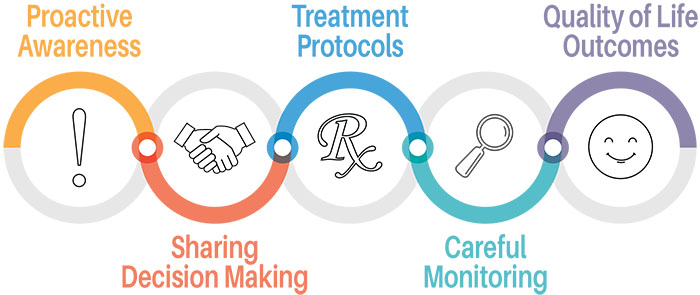Ensuring you are In the Know about medically related factors is a responsibility our practices takes to heart. Systems-thinking is key: namely body systems such as circulatory, within which blood flow and toxins or impurities can negatively impact functionality of tiny auditory (hearing) and/or vestibular (balance) organs.
Center for Disease Control (CDC) specifies: “The total number of cases is predicted to increase by 49% from 1,534,500 (2015) to 2,286,300 annual cases (2050). In each age group, the total number of cases is predicted to increase.” 1
In practice, chemotherapy is a primary cancer treatment regimen, with cisplatin and similar chemical compounds as frequently used therapeutic agents. This requires us to understand Ototoxicity, the manner in which certain drugs can cause side effects such as ringing in the ears (tinnitus), hearing loss or dizziness. Harmful effects can impact the cochlea (inner ear) or vestibular (balance) system. Keep in mind that, beyond cisplatin, there are 100’s of potentially ototoxic medications, including many commonly used, but most remain (despite Rx paperwork provided) unaware of side effects. For a comprehensive list, click here.
Taking these factors into consideration, Ototoxicity Monitoring should be integrated into daily or acute decision making with a healthy sequence like this:

Count on us for baseline exams, ongoing evaluations of hearing ability trends and sound advice.